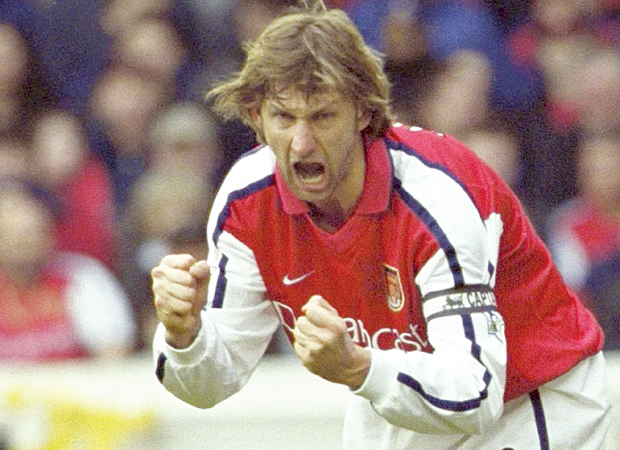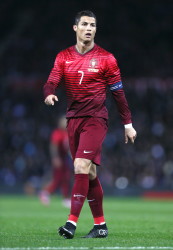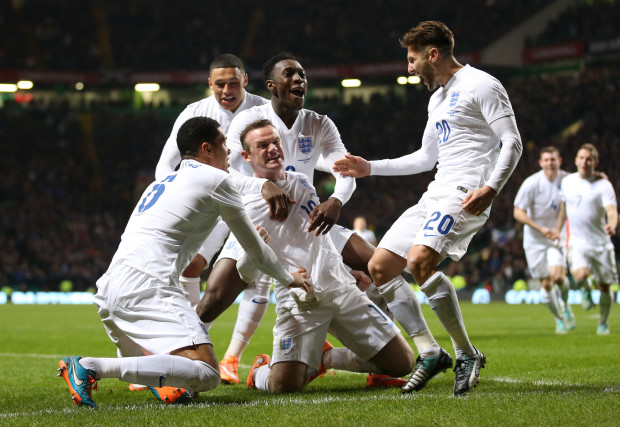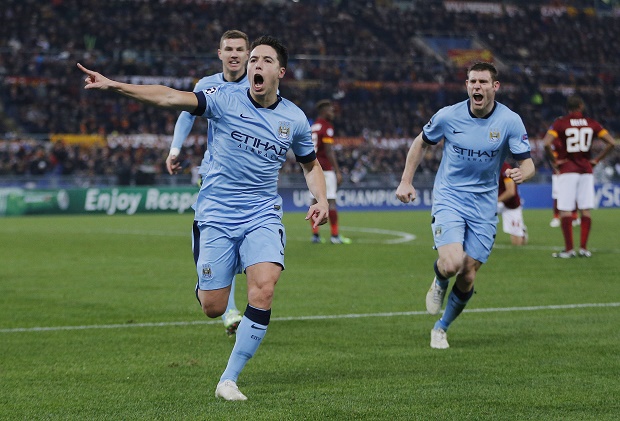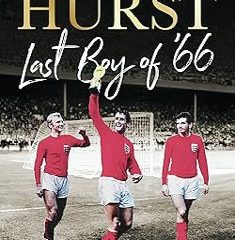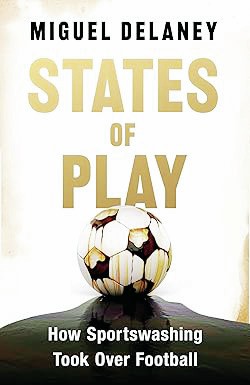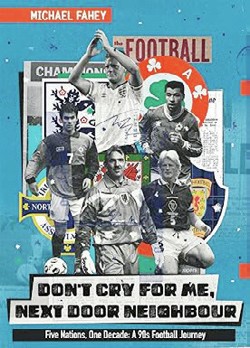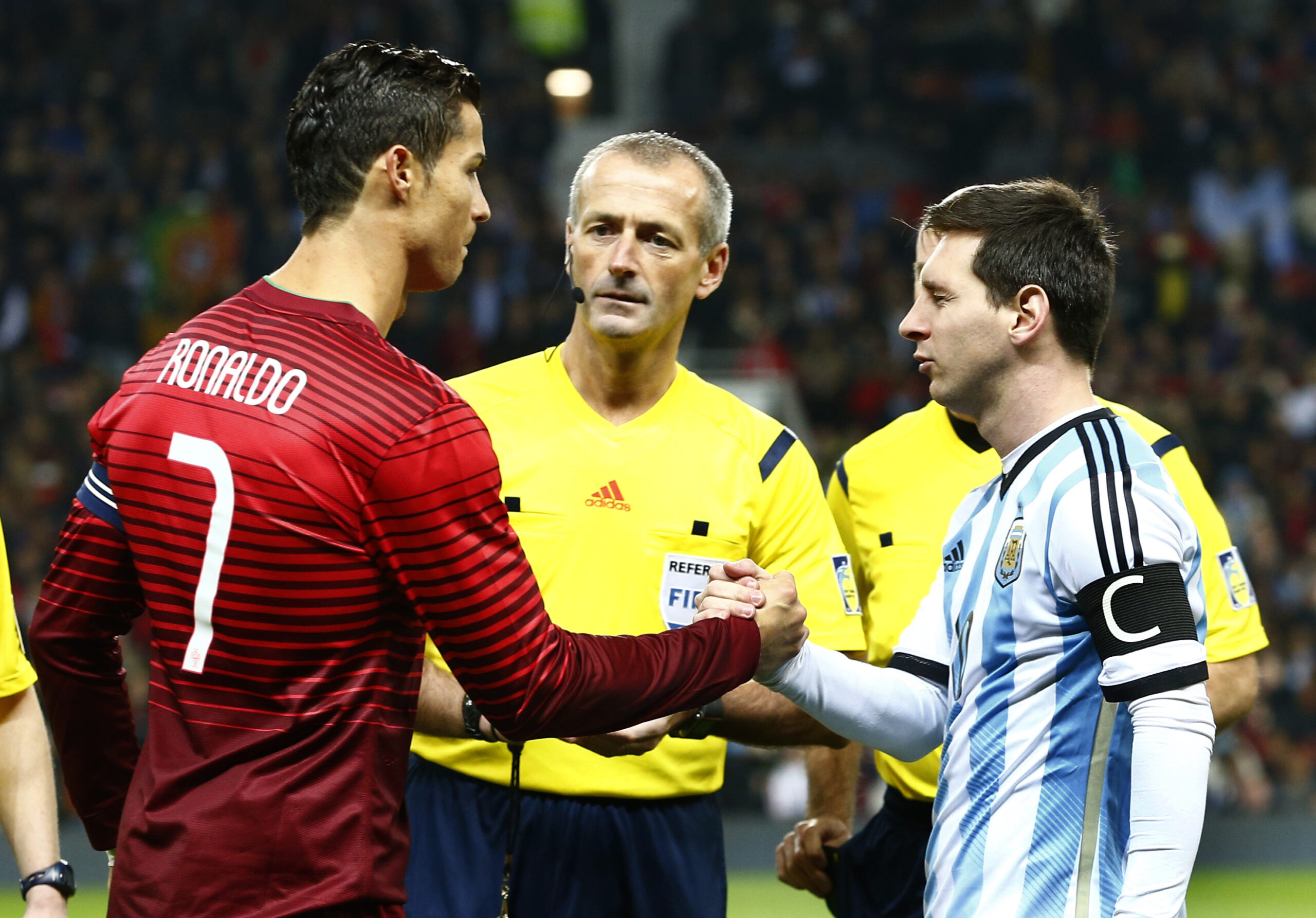
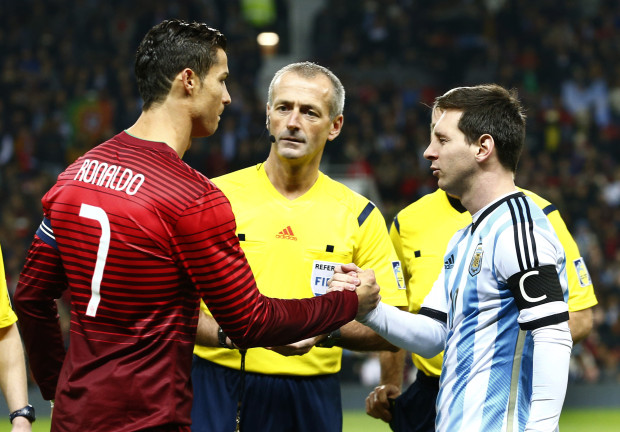 Is Wayne Rooney an England great? Do the scoring feats of Lionel Messi and Cristiano Ronaldo elevate them to the company of Pele and Maradona? We hear these sorts of question asked all the time, generally when some sort of record has been smashed.
Is Wayne Rooney an England great? Do the scoring feats of Lionel Messi and Cristiano Ronaldo elevate them to the company of Pele and Maradona? We hear these sorts of question asked all the time, generally when some sort of record has been smashed.
Just this month we have seen Messi simultaneously become the leading scorer in both Spanish football and European Cup history. Statistically, he has no peer.
But football is not statistics. And as much as OptaJoe and the FinkTank would like us to bow down before the altar of cold, hard numbers, it never will be. Statistics work only when all things are equal, or – failing that – models are created to adjust for difference. Without these, statistics in football can be used only as a rough guide. Context is just as important.
So is Messi the greatest of all time? Let’s begin by going back to the start. Real Madrid have won ten European Cups, the most recent of which came last year – the much heralded, long-awaited Decima.
That’s three more than AC Milan, five more than Liverpool or Bayern and – most importantly to them – six more than bitter rivals Barcelona.
Impressive, eh? Well, not when you consider that Madrid won the first five European Cups straight, a feat that isn’t anywhere near as difficult as it sounds.
Take 1955-56, the competition’s inaugural year. The teams – all 16 of them – were chosen by French footie mag L’Equipe, purely on the basis of who they thought were most famous.
Of these, Chelsea were blocked from playing by the English FA and replaced by Gwardia Warswaza, of Poland, whilst the firstchoice clubs from Holland, Hungary and Denmark all pulled out.
There was even a team from Saarland; a tiny autonomous region that was later incorporated into West Germany.In the end, Madrid needed just four ties and seven games – against Servette of Switzerland, Partizan of Yugoslavia, AC Milan of Italy and finally Stade Reims of France – to win the title.
So it went, five years on the bounce. In fact, by the time La Quinta had been procured in 1960, Los Blancos had played just 35 times in the competition.
Back then, a kind draw and a bit of luck could have you in the semi-finals before Christmas. Fourteen games would make you a double champion. Nowadays, you’d need a minimum of 13 to win the damn thing once. And don’t forget, that’s 13 games against multiple teams from the best leagues in Europe, not a handful of nobodies from Backofbeyondovakia. Back then, only national champions were eligible.
Yes, you can only beat what’s in front of you. But when eliminating Shamrock Rovers or Hibernian equates to a quarter of the job, it’s hardly as tough as getting out of a group stuffed with four domestic champions.
Is it any wonder that nobody in the Champions League era has managed to retain the trophy? The level of consistency required is insane.
Personally, I’d kill for a return to the old ways of straight knockout and no seeding. It would make things far more exciting. But there’s no getting away from the fact it was much easier to win the European Cup in the years before groups were introduced in 1992.
The same argument applies when people harp on about Liverpool dominating Europe in the late seventies and early eighties. Impressive, yes, but nowhere near as impressive as Barcelona winning it three times in six years between 2006 and 2011. In this sense comparing the ‘old’ European Cup with the Champions League is like comparing the marathon to the 100m. For any statistics to be meaningful, they have to be separated.
So what has all this got to do with Ronaldo and Messi? Well, that’s where we flip things around. Because while the old format meant it was easier for teams to leave lasting benchmarks, the opposite was true of players.
Messi is currently the competition’s all-time leading scorer with 74 goals. Ronaldo is three behind on 71.
Yet both of them are playing for teams who a) always qualify for the Champions League and b) generally make it to the semi-finals. Even allowing for a quarter-final exit, that’s a minimum of ten games every single season.
In simple terms, they have more opportunities to score than their predecessors could dream of. Eusebio, for instance, would have needed to win the European Cup 13 years running just to make the number of appearances (91) that Messi has. No wonder the top five scorers – Messi, Ronaldo, Raul, Ruud van Nistelrooy and Thierry Henry – all played in the modern era. That, of course, is one statistic that can be adjusted for. And by dividing goals by games we duly find that Messi, with 0.81, is beaten into second place by Alfredo Di Stefano, the great Real Madrid striker whose 49 goals in 58 games give him a ratio of 0.84.
Just as importantly, Messi enjoys other immeasurable advantages. Unlike Di Stefano or Eusebio, he plays in an era where opponents can no longer waste time by passing back to the goalkeeper or escape punishment for kicking chunks out of creative players. Balls are lighter, surfaces and equipment are better, so too is diet and nutrition. At the same time, however, the game is played at twice the pace so Messi must think and act twice as quickly. We can extrapolate this to Rooney who – barring some calamity – will almost certainly become England’s record goalscorer within the next 12 months. The Manchester United man has 46 goals in his 101 games, two behind Gary Lineker and three adrift of long-time leader Bobby Charlton. Statistically, this would make him England’s greatest ever striker. But is he really? I don’t think so.
For starters, Jimmy Greaves may only have scored 44, but he did so in just 57 games, a ratio that blasts all rivals to kingdom come.
Lineker and Charlton’s goals also meant something. Lineker scored nine times across two World Cups, including a late semi-final equaliser against Germany and those two pressure pens against Cameroon. Charlton single-handedly dragged England into the 1966 final.
Rooney, famously, has managed just two World Cup goals and scored only eight times against teams in the world’s top eight.
Then, of course, there’s the total lack of decent competition. Would Rooney have played 101 times for England 20 years ago? No chance – not with players like Alan Shearer, Teddy Sheringham and Robbie Fowler at their peak.
On the one hand, you could say Rooney’s record says more about the sorry state of the England team than it does about his talent. But, on the other, you could argue that he’s still managed to score goals in a team consistently worse than those graced by Charlton or Lineker. Again, it’s all about context.
The simple message is that there is no such thing as the greatest of all time. It’s a fun debate, but ultimately meaningless.
Di Stefano was the European Cup’s most prolific marksman in his day. Messi is the best in his. And whilst Charlton was England’s deadliest weapon in the sixties, the modern era belongs to Rooney.
And until somebody can build a time machine and organise the greatest charity match in history, that’s the way it will have to stay.
by Chris Dunlavy


Book Reviews
Book Review: Chris Towers finds right mix

Book Reviews
Book Review: Sir Geoff Hurst hits net
